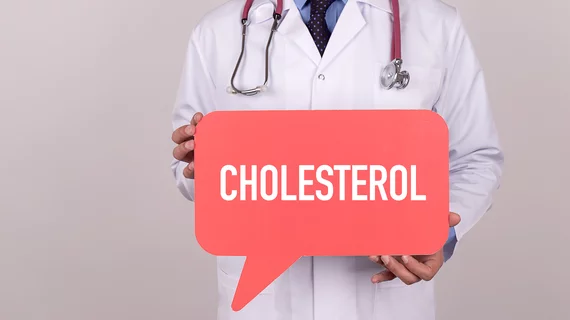Finalized results from the OSLER-1 trial—the longest-running study of PCSK9 inhibitors to date—suggest evolocumab is safe and “consistently excellent” at lowering LDL-cholesterol through five years.
PCSK9 inhibitors, though often criticized for their unaffordability, have been largely effective in managing heart patients’ cholesterol levels over the past few years. The FOURIER study in particular represented a big win for the lipid-lowerers, reporting in 2017 that evolocumab reduced the risk of CV death, MI or stroke by 16% in first-year, high-risk patients with atherosclerotic CVD. The drug was found to reduce CV risk even further, by 25%, after a user’s first year.
OSLER-1 (Open-Label Study of Long-Term Evaluation Against LDL-C Trial), led by Michael J. Koren, MD, and colleagues, launched in 2011 and followed patients treated with evolocumab for up to five years. It randomized hundreds of patients to standard of care (SOC) or SOC plus 420 mg of evolocumab monthly for a year, followed by four years during which any SOC-exclusive patients could switch to treatment with SOC plus evolocumab.
A total of 1,255 patients in the study were randomized into the year one SOC-controlled group and received at least one dose of evolocumab. Another 1,151 progressed to the all-evolocumab arm after the first year.
Koren et al. reported that evolocumab plus SOC consistently lowered patients’ LDL-C, by 56%, 57%, 56% and 56% after two, three, four and five years, respectively. Mean baseline LDL-C decreased from 140 mg/dL to 61 mg/dL with evolocumab and SOC, with yearly serious adverse event rates ranging from 6.9% to 7.9%.
“This consistent efficacy over time provides reassurance, especially given the tendencies for less aggressive background pharmacotherapy and diet following the initiation of anti-PCSK9 therapy,” the authors wrote in the Journal of the American College of Cardiology, where they published their results this month.
The team reported that 5.7% of patients taking evolocumab discontinued use due to adverse events during the follow-up period. Two SOC-only and two evolocumab plus SOC patients developed new, transient, binding anti-drug antibodies during the study.
“In patients with hypercholesterolemia, including those with severe familial forms, the anti-PCSK9 antibody evolocumab exhibits sustained efficacy without development of drug-neutralizing antibodies or other attenuating factors, and relatively infrequent adverse reactions requiring interruption of treatment,” Koren and colleagues wrote. “Similar long-term follow-up studies should include other novel therapies as comparators to better understand the factors that contribute most to sustained benefit over time.”

